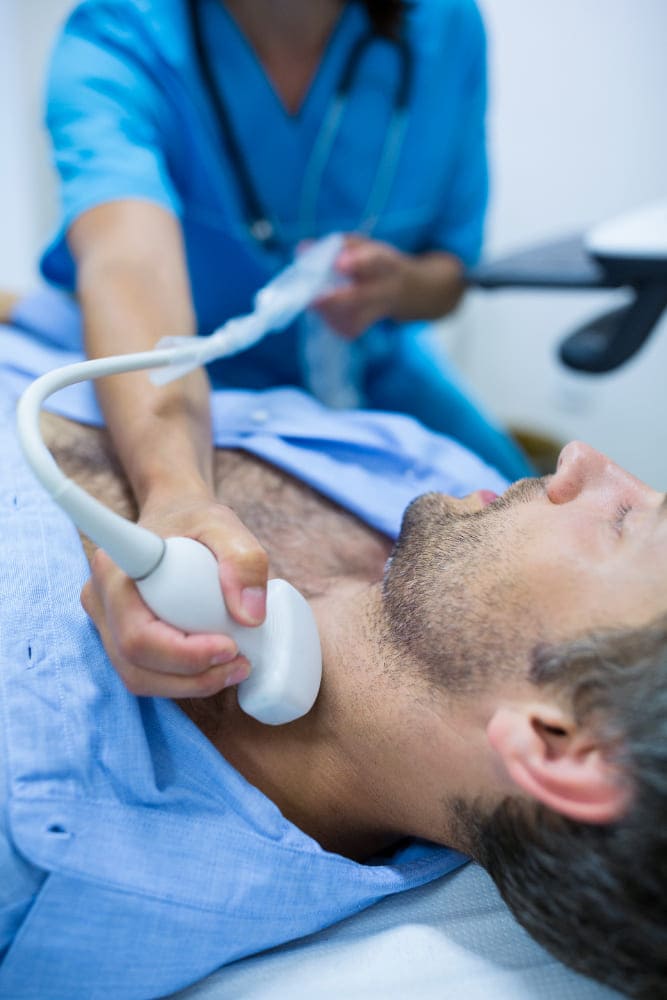
Overview
USG Thyroid
USG (Ultrasound) Thyroid is a safe and non-invasive imaging technique used to assess the thyroid gland's structure and detect any abnormalities. This scan is particularly useful for diagnosing and monitoring thyroid-related conditions.
Why Is USG Thyroid Important?
- Detection of Thyroid Nodules: Identifies nodules, cysts, or lumps in the thyroid gland.
- Assessment of Thyroid Enlargement: Helps evaluate goiter or swelling of the thyroid gland.
- Differentiating Conditions: Determines whether a thyroid nodule is solid or fluid-filled (cystic).
- Monitoring Thyroid Disorders: Tracks changes in size or appearance of nodules and evaluates treatment effectiveness.
- Guided Procedures: Assists in fine-needle aspiration biopsies for precise sampling of nodules.
When Should You Consider a USG Thyroid?
- Presence of a lump or swelling in the neck.
- Symptoms of hyperthyroidism (weight loss, rapid heartbeat) or hypothyroidism (fatigue, weight gain).
- Family history of thyroid disorders or cancer.
- Difficulty swallowing or a persistent sore throat.
- Monitoring after thyroid surgery or treatment.
Advantages of USG Thyroid
- Non-Invasive: Simple and painless procedure.
- No Radiation: Safe for repeated use, even in sensitive cases.
- Accurate Imaging: Provides clear visuals of thyroid structure for precise diagnosis.
USG Thyroid is an essential tool for ensuring thyroid health, aiding in early detection, and guiding effective treatment. If you experience any symptoms or have a family history of thyroid issues, consult your healthcare provider about scheduling this scan.

